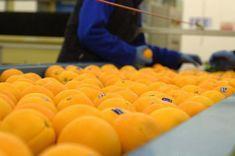
Martin Dunnett describes himself as a graduate from the class of 1977. He stepped into the role of marketing manager at Capespan in 1983, and in the 27 years he has been in the business he thinks that one of the big factors of change is the role of the multiples within the market place.
Dunnett says: “The multiples have been a fantastic catalyst for the market. In terms of varieties, quality and packaging they are driving the market forward.”
He does feel that retailers do not completely understand the restrictions imposed upon growers, however. “The pace of the citrus market does frustrate retailers on occasion. For a new variety to reach the shelves it can take up to seven years, and supermarkets do not always understand why they can’t have newer varieties quicker,” he says.
Ongoing rationalisation is helping growers understand the needs of the retailers and this can only be good for the industry. He says: “Packing at source, for example, is improving results and fruit quality, and better relationships are developing between growers and retailers.”
Dunnett believes that there will be a further two years before industry changes are complete. “The most efficient growers will be able to rise to the top as changes take hold. Capespan has been trying to work with the best growers, and we have found that growers are increasingly demanding, which can only be good,” he says. “It’s important we offer full accountability and traceability to our growers, so if they want to know the whereabouts of a particular pallet we can do this. At Capespan we have to be 10 per cent better than the competition to prove our worth to the market and we are achieving this.”
Adding value is vital to the business. Retailers and growers are constantly scrutinising costs. The challenge for any supplier is to be the most cost-effective. Dunnett believes that as Capespan is a global business it can see the bigger picture. “The UK can become parochial just by focusing on growers and retailers. We need to keep tabs on the world markets. For example; Tesco, Wal-Mart and Carrefour have all expanded into new territories. It’s important we monitor how markets are performing in the US and the Middle East,” he says.
The rise in importance of good cool-chain facilities has also helped the citrus business develop. Dunnett says: “The facilities have improved immeasurably. Many years ago the fruit used to be travel to the port via train, at this time the fruit wasn’t refrigerated. But with many cold store facilities at ports now, the times are changing for the better. Improving the cool-chain also improves the shelf life of the fruit. We still use the traditional reefer ships to transport the fruit, but modifications in packaging are having an impact. Advanced air-flow packaging is further good news for the product.”
Dunnett has also seen the phenomenal growth in easy-peelers. He says: “Capespan has the exclusive rights to Clemengolds - these were developed in Morocco. I feel that this product is taking the market on another stage. Future developments will look to fill gaps in the market, whether an early Satsuma, or a late Navel. The aim is to fill in wherever possible.”
Dunnett believes SA citrus has come through the darker, post-deregulation times and is looking towards a bright future. He says: “Last year Capespan and the South African industry had a second reasonable season following a low-point in 2000 when some growers didn’t survive. Looking forward - citrus growth has been good. The weather in South Africa has been unusual, with the western and eastern Cape experiencing a cooler Christmas than normal. The season will be late on all Cape products and we anticipate a late start for easy peelers.
“But we are confident. Representing 35 per cent of all South African exports we feel we have good representation in all areas and are excited by our future prospects.”



